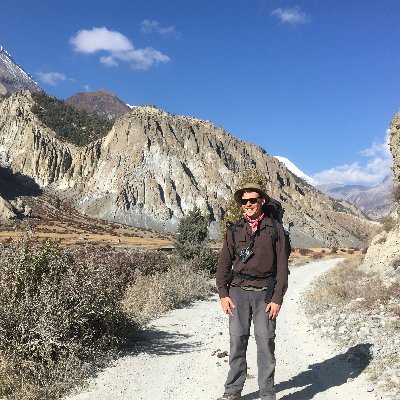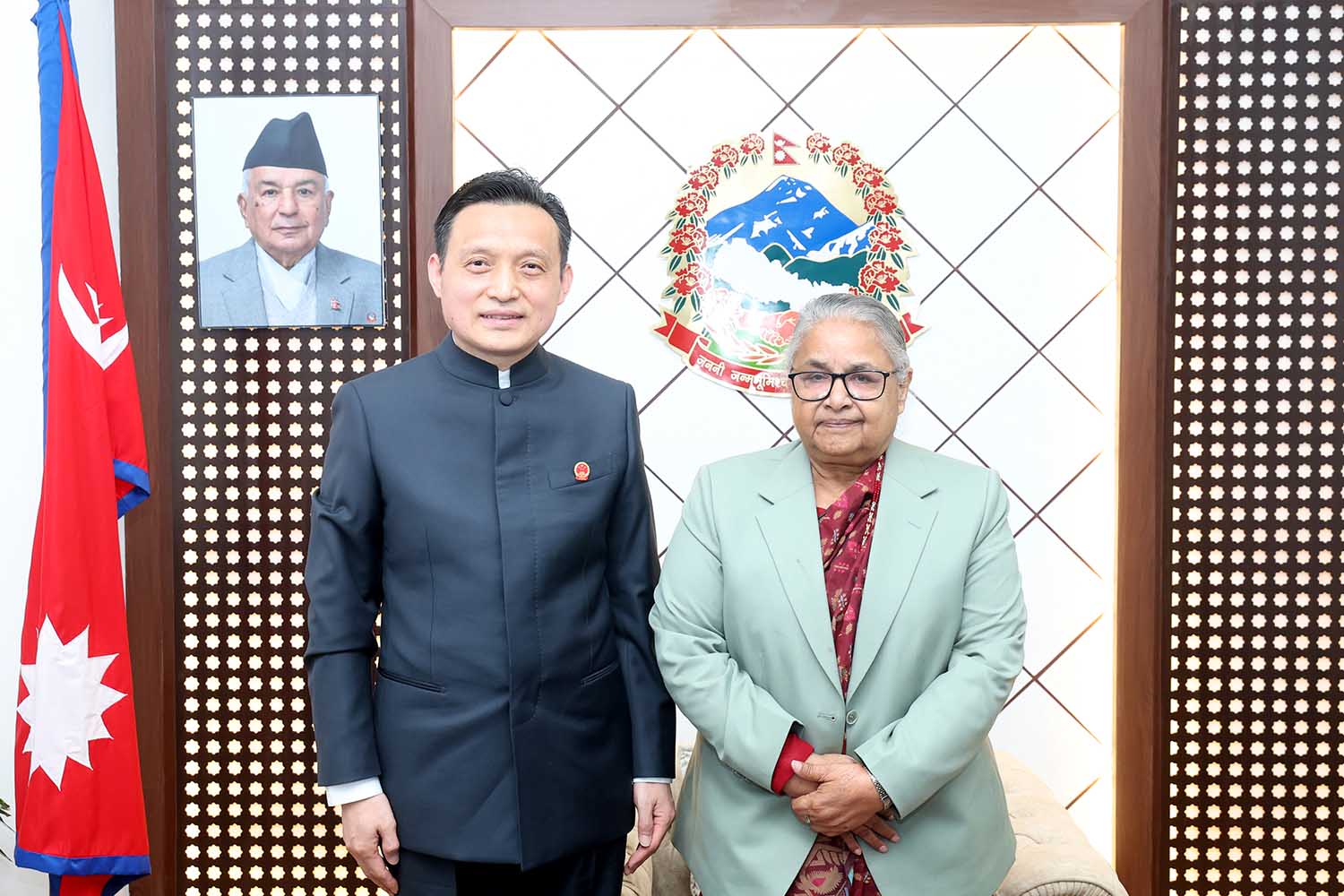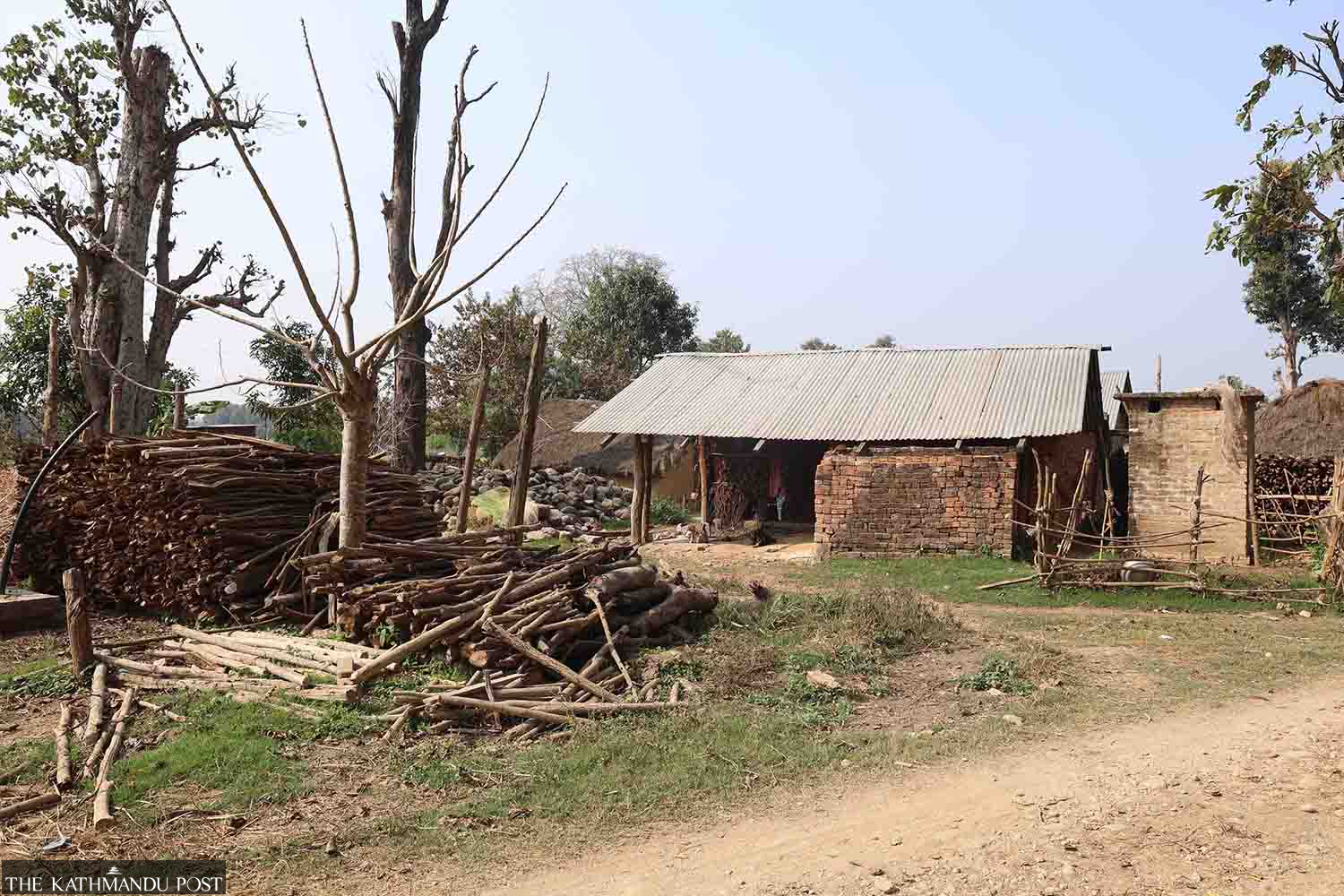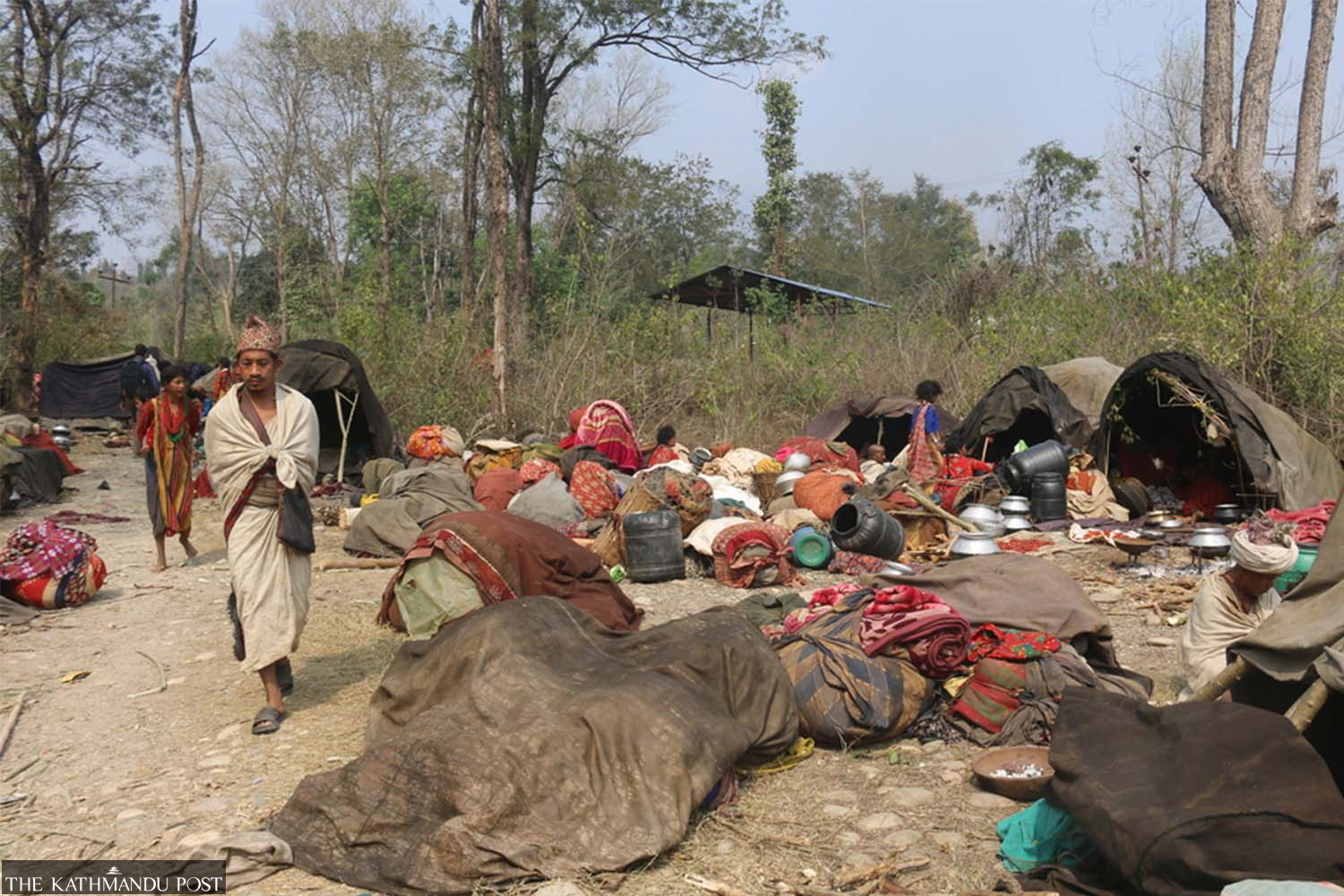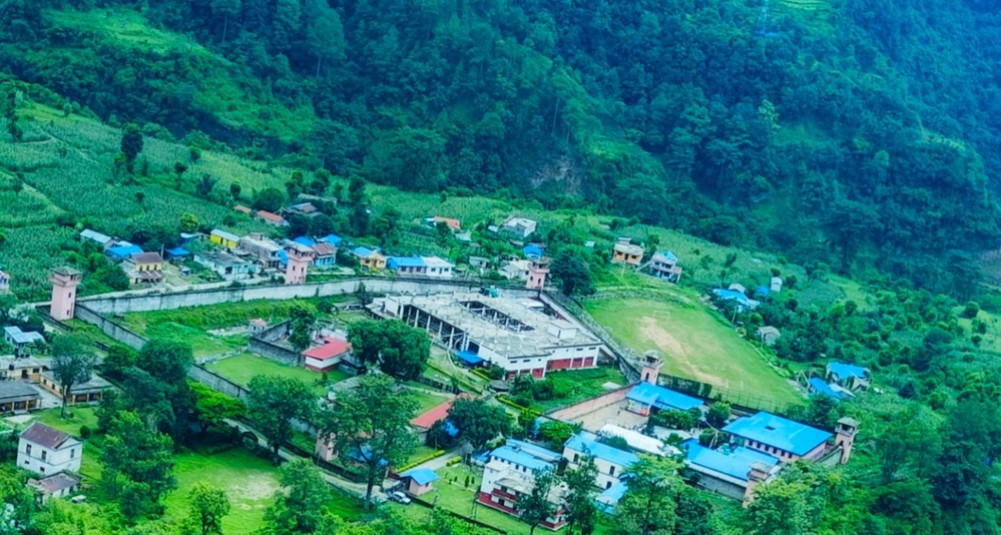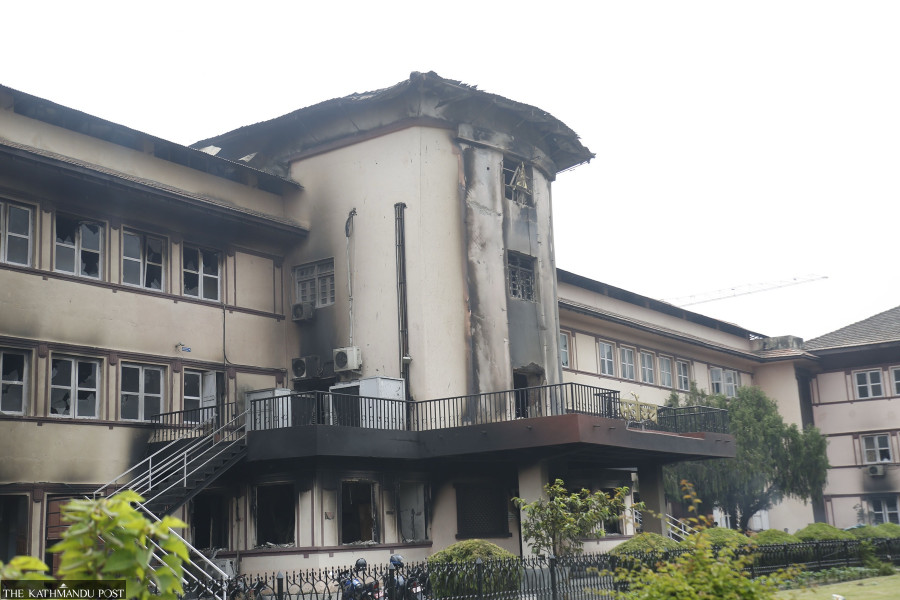National
‘Cheap’ Nepali deaths in US war zones
In Afghanistan and Iraq, Nepalis who are injured or killed while working for American contractors are often sent home with only token compensation, or none at all.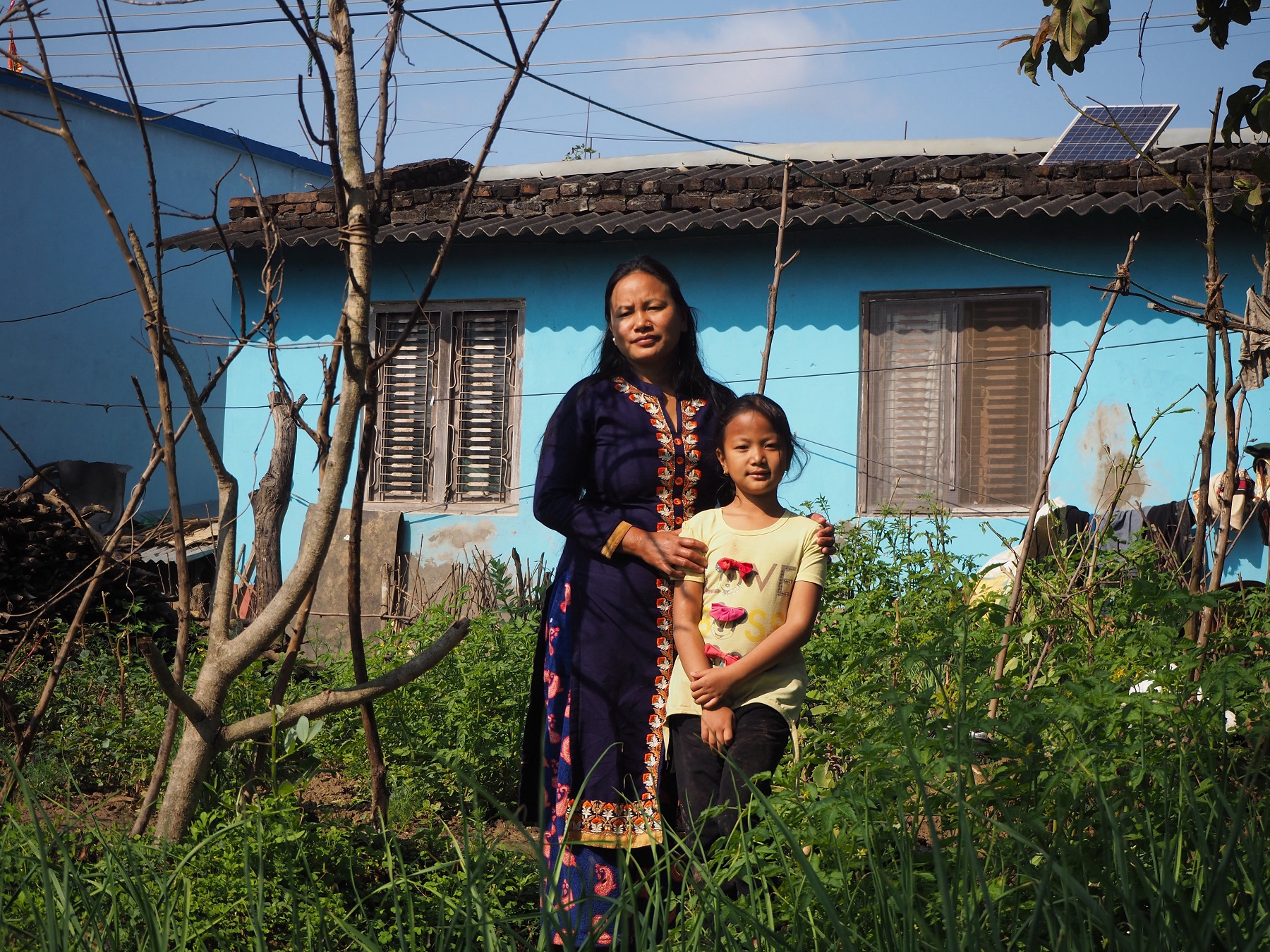
Peter Gill
Last fall, months before Covid-19 infected millions and turned the world’s economy upside down, a personal tragedy unfolded in Dhan Kumari Pun Magar’s life. Her husband of 18 years, Chandra, was working in Kabul, Afghanistan, as a security guard and gym instructor inside a large residential and office complex.
Chandra would call Dhan Kumari several times a day to discuss their two children’s progress in school, Chandra’s elderly father’s health, and the goings-on in Premnagar, their neighborhood in Kohalpur, Banke district. Ending a call on the night of September 2, 2019, Chandra told Dhan Kumari, “I’m going to the gym, but I’ll be back soon and I’ll call you before I go to sleep.”
However, his call never came. The next morning, Dhan Kumari tried frantically to reach Chandra, but his phone was switched off.
That evening, a story appeared on Nepali television: a Taliban suicide bomber and gunmen had attacked the Green Village compound in Kabul, killing around 30 people, including two Nepalis.
Dhan Kumari’s heart sank. Green Village was where Chandra worked. A few days later, Chandra’s employer and co-workers confirmed the bad news: Chandra had been killed in the attack.
“He was always positive. He had no bad habits, and he hated to see others suffer–he always tried to help people,” said Dhan Kumari two months after his death. She believes her husband was killed less than an hour after their last phone conversation.
Chandra was the sole breadwinner in the household.
The family lacks title for their home, which sits on a small, flood-prone plot of land.
After Chandra’s death, Dhan Kumari became responsible for supporting their children’s education and medical costs for her elderly father-in-law.
Chandra’s employer, GardaWorld, is a multinational security corporation based in Canada that recorded USD 250 million in profit in 2018. After Chandra was killed, the company provided Dhan Kumari a lump-sum insurance payment equivalent to four years of Chandra’s salary.
But official documents and other evidence show that because GardaWorld held sub-contracts with the US government at Green Village, Dhan Kumari is legally entitled to much more—equivalent to around 20 years’ of her deceased husband’s salary.
Dhan Kumari is not the only Nepali to be denied proper compensation for a death in Afghanistan. In fact, official reports indicate that US contracting companies and their insurers routinely deny Nepali workers proper compensation benefits. According to data obtained from the US Department of Labor through the Freedom of Information Act, only around 200 workers claiming residence in Nepal have ever officially registered claims for injuries and deaths in Afghanistan. Experts say this is likely far less than the actual number hurt or killed.
Cheap labor for contractors

Faced with political turmoil and a lack of job opportunities at home, Nepalis began venturing to both Iraq and Afghanistan in large numbers in the mid-2000s.
Noah Coburn, a political anthropologist at Bennington College who studies military contracting, estimates that 50,000 Nepalis have worked in Afghanistan since the war began.
Lalkaji Gurung, the president of the Non-Resident Nepali Association of Iraq, estimates that there are currently around 15,000 Nepalis in that country, of whom around 5,000 work on various US bases. He says the number was much higher before 2011, when most American troops were withdrawn.
In both Iraq and Afghanistan, the US is heavily reliant on contracting companies that guard, supply and manage its military bases, embassies, and other facilities. According to Coburn, from the beginning, security companies were eager to hire ex-soldiers from the Indian and British Gurkha Regiments, the Nepal Army, and the police. Over time, employers also began hiring Nepalis as cooks, mechanics, dishwashers and for other work.
Most Nepalis migrated through unofficial channels, often with the help of local and foreign agents and human traffickers. Today, many Nepalis in Iraq and Afghanistan lack valid visas and work permits from their host countries’ governments, which puts them at risk of arrest whenever they leave the base or compound where they work. Because they are dependent on their employers for protection, they are often unable to seek help in case of mistreatment, according to Coburn.
A luxury compound in Kabul
Green Village, a residential and office complex on the outskirts of Kabul, was like “an island of luxury and safety amid a sea of danger,” according to one former visitor. In addition to office spaces and 1,800 residences, Green Village’s website advertised a gym, swimming pool, spa, beauty salon, and several restaurants and cafes.
The residents were an international mix. Some worked at offices within the compound, while others commuted elsewhere in Kabul. During evenings at the Green Village bar, UN officials and USAID workers rubbed shoulders with intelligence officers, helicopter pilots, and private security contractors.
According to records from the Afghan Ministry of Industry and Commerce and from the US Army, Green Village belonged to Stratex Hospitality, a privately owned company registered in Afghanistan under Neil Emilfarb, an Uzbek-American entrepreneur.
Stratex Hospitality hired GardaWorld, the Canadian firm, to secure the compound.
According to Prakash KC, a former colleague of Chandra’s and former deputy-head of security at Green Village, nearly all of GardaWorld’s 200 men at the facility were Nepalis. Many were retired from the Nepal Army or Nepal Police, but some had no background in security work.
Unlike Green Village’s paying residents, who led a luxurious lifestyle, the Nepali guards lived frugally. When they weren’t on duty checking vehicles at the gate or patrolling the perimeter walls, they slept in a dormitory on the edge of the property, a stone’s throw from Afghan families’ rooftops.
The Nepalis were not generally allowed to leave the compound–and often went six months or a year without seeing the outside world.
Then, one night, the outside world came crashing in.
Just before 10pm on September 2, 2019, a large truck trundled up the Kabul-Jalalabad highway before coming to a stop just outside Green Village’s southern perimeter wall.
Moments later, it exploded, blowing a massive hole in the wall and creating a crater several meters deep. Before the dust settled, several Taliban gunmen armed with rifles, grenades, and suicide vests ran into Green Village and began firing.
Based on where his body was later found, colleagues believe Chandra was en route from the gym to his living quarters when he was shot. Another Nepali guard, Krishna Bahadur Thapa, from Chitwan, died in the initial blast.
In total, around 100 people were injured and 30 were killed before guards and Afghan special forces killed the last of the Taliban gunmen, in the early hours of the next morning, according to a report in The Nation. Besides the two Nepalis and two other foreigners, the rest of the dead were Afghan neighbours whose homes were hit by the initial blast.
The Defense Base Act

The United States passed a law nearly eight decades ago that guarantees compensation for any war-zone worker who is injured or killed while working under a US government contract or sub-contract. The 1941 Defense Base Act, or DBA, sets compensation standards according to the type of injury, the worker’s salary, and, in death cases, the number and age of dependent family members.
The amount is much higher than workers would otherwise receive under Afghan or Iraqi law. For example, widows and widowers are entitled to half of their deceased spouse’s salary for the rest of their lives, and disabled workers are entitled to regular disability payments. Injuries caused by enemy attacks are compensated, as well as common workplace injuries. In the case of death or permanent disability, compensation may be paid in regular installments or as a single lump-sum, calculated using a legal formula that considers the recipient’s age, life expectancy and the interest rate.
To comply with the law, contracting companies must buy special “DBA insurance” that will provide compensation according to the law’s standards. Before the government releases funds to any contracting company to begin work, the company must prove that it has purchased the insurance for its workers. Afterwards, if anyone is injured or killed, the employer must inform the US Department of Labor, which keeps track of the case and makes sure that the insurance company pays compensation to the employee or his/ her survivors.
The available evidence suggests that GardaWorld was required to buy DBA Insurance for Chandra and the other Nepalis at Green Village. According to internal records provided by a former Stratex employee, Stratex was leasing office space to the following US contractors at the time of Chandra’s and Krishna’s deaths: Tetratech, which oversaw several USAID projects; DynCorp International, a major US Department of Defense contractor; Leonardo DRS, an American defence contracting company; SOSi International, a company that supported the US government’s media and “psychological operations” work in Afghanistan; Mission Essential, an American translation and intelligence firm; and Mantech, an American defence and intelligence firm. In addition, various other US government contractors rented residential units.
These clients paid Stratex not only for housing and offices, but also for protection. According to a rental agreement between Stratex and Tetratech, Stratex was responsible for providing “armed site security” and “24 hour guards.” Stratex hired these guards— including Chandra—under its sub-contract with GardaWorld.
GardaWorld had insurance for Chandra, but it appears that it did not meet the DBA standards. Weeks after Chandra’s death, GardaWorld’s representative Tim Illingworth provided Dhan Kumari with a lump-sum insurance payment equal to four years of Chandra’s salary. But section 2(b) of the DBA and 9(b) of the Longshore and Harbor Workers’ Compensation Act, which the DBA references, would have required GardaWorld to provide half of Chandra’s salary for the rest of Dhan Kumari’s life, plus an additional 16.6 percent until her youngest child, who was seven at the time of Chandra’s death, reaches 18 years of age. Alternatively, the payment to Dhan Kumari could have been commuted to a lump-sum equal to around 20 years’ of Chandra’s salary, based on formulas used by the Department of Labor.
GardaWorld declined to comment for this article, and Stratex representatives did not respond to a request for comment.
A betrayal of workers

It is not uncommon for contracting companies in Afghanistan to deny Nepalis proper compensation. Some employers never buy DBA insurance, putting their workers at risk. In 2011, the Special Inspector General for Afghanistan Reconstruction, an American government anti-corruption watchdog, audited 24 sub-contractors of the US Army Corps of Engineers and found that only nine companies had purchased the required DBA insurance. The rest had left their workers uninsured or only partly insured.
Other times, even when they have insurance, employers fail to report claims on behalf of their workers. Instead, they pay for the costs of immediate medical treatment and then send injured workers home, sometimes with a token sum of money, according to Matthew Handley, an American human rights lawyer who has represented dozens of Nepali DBA claimants.
Most Nepali workers do not challenge their employers because they are unaware of their rights. One reason for this lack of awareness is that Nepalis’ contracts seldom mention DBA insurance.
US law requires all of its sub-contracts in Afghanistan and Iraq to include a clause detailing DBA benefits, but employers often omit such a clause in Nepali workers’ contracts. Chandra’s contract stated that GardaWorld would purchase insurance for him, but did not state that the insurance would meet the Defense Base Act standards. Contracts of Nepali workers at two other security contracting companies in Afghanistan, DynCorp and Compass Security, also failed to mention DBA insurance provisions. All these agreements appeared to be for work under US government contracts or subcontracts. The DynCorp contracts mention appendices containing more insurance details, but the Nepali employees said they never received the appendices and knew nothing about their rights under the DBA.
According to data from the US Department of Labor obtained through the Freedom of Information Act, only around 200 workers claiming residence in Nepal have ever filed DBA compensation claims for incidents in Afghanistan. Although there are no accurate records to determine how many Nepalis have actually been injured and killed, the number is likely to be far higher than 200—especially given that an estimated 50,000 Nepalis have worked in Afghanistan.
But injured Nepali workers face obstacles that go beyond difficulties in filing DBA claims. Even when they are able to file claims, insurance companies sometimes deny Nepalis’ claims, make payments late, or pay only a fraction of the damages suffered by Nepalis living with disabilities.
In 2010, the American news organisation ProPublica found that DBA insurance companies routinely denied injury claims from American contractors, who faced difficulties appealing to the Department of Labor. And if American workers have a hard time fighting insurance companies’ decisions, it is even more difficult for Nepalis.
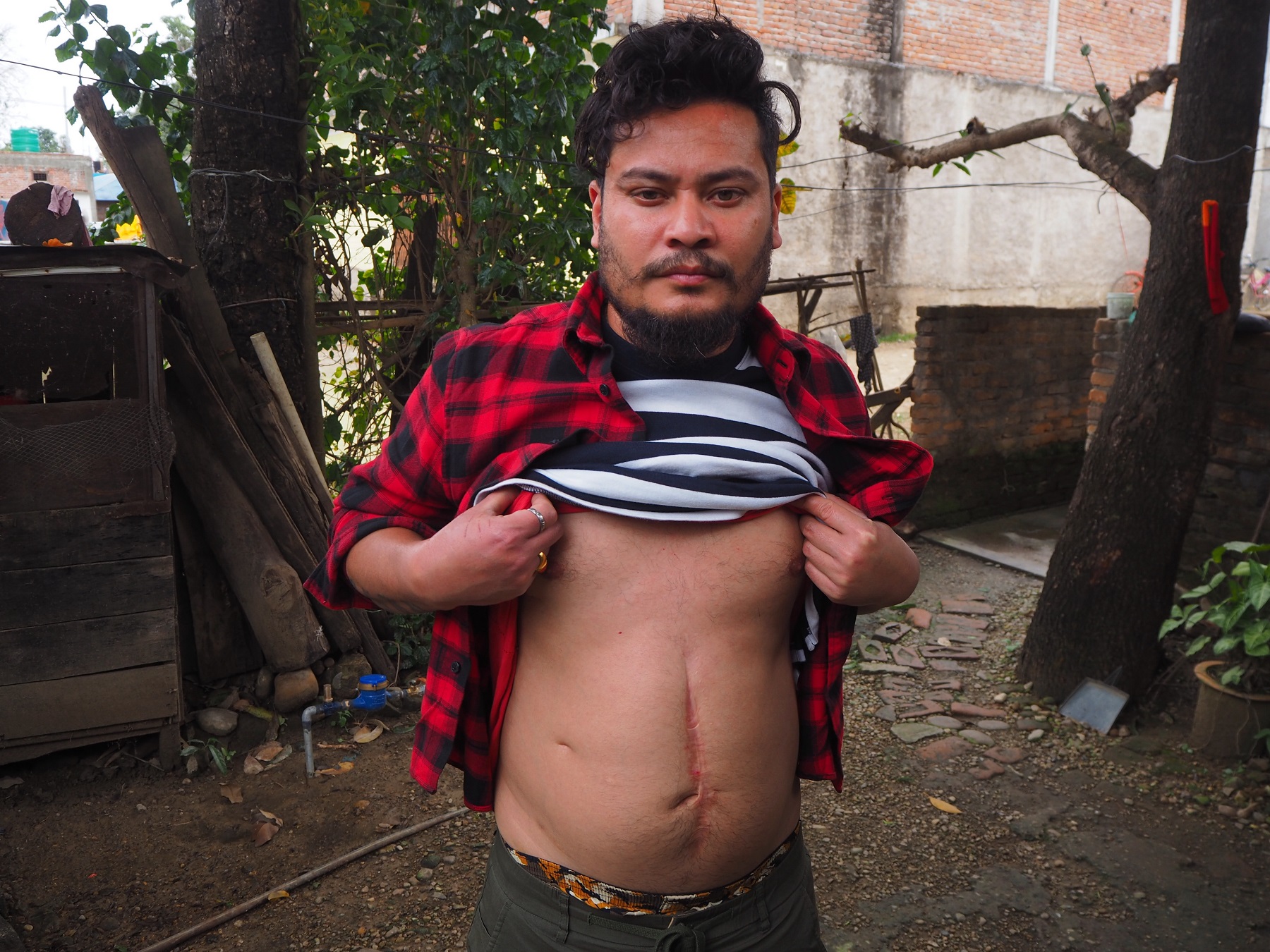
The story of Kishor Singh Thakuri from Gadhawa in Dang district shows how difficult it can be for Nepalis to get a fair compensation package from insurance companies.
In 2008, when he was just 20, Thakuri went to work for a food catering company at the American base Camp Taji in Iraq. Months later, on June 26, 2008, he was shot in the abdomen while he was walking near the base’s dining hall. According to Tikaram Pandey, a Nepali witness to the tragedy, American soldiers accidentally shot Thakuri during a training exercise.
Luckily, Thakuri survived. He underwent surgery in Baghdad and was sent home several months later. But he heard nothing from his insurance company, American International Group, for nearly four years, until November 2011, when an agent asked him to come to Kathmandu for a medical checkup to determine the extent of his injuries. Afterwards, she handed him a check for around $2,000 and asked him to sign an agreement stating that he would not ask for any further compensation. Thakuri said he signed the agreement without reading it carefully.
According to the law, Thakuri could have refused the insurance company’s offer and taken his case to a court in the US in order to receive more compensation. But he said he was not fully aware of his options. “I had no idea that I could challenge the amount the insurance company gave me, or complain to the American government,” said Thakuri.
According to the agreement he signed, the insurance company alleged that Thakuri was ineligible for a larger payment because he suffered no disability. But Thakuri’s medical report indicates he still has three bullets lodged in his body, including one next to his liver, which would be risky to surgically remove. Once an avid footballer, Thakuri said he can no longer play sports or lift heavy objects.
Luckily, Dhan Kumari, Chandra’s widow, did not fall into the same trap as Thakuri.
In December last year, Dhan Kumari and Laxmi Thapa, Krishna Bahadur’s widow, met with the lawyer Matthew Handley and his Nepali partner Ganesh Gurung in Kathmandu. Handley agreed to represent the widows against GardaWorld. He filed both cases requesting full DBA compensation in January this year.
Handley has also filed claims on behalf of seven other Nepalis who were injured or killed at Green Village prior to the most recent attack in which Chandra and Krishna died. Even though these cases are old—some date to 2012—it is possible to file claims if the employer never reported the death or injury to the US Department of Labor. In such cases, there is no time limit for filing claims.
According to Handley, all of the Green Village cases are still awaiting a decision from the US Department of Labor. The Nepali government, however, has yet to pay attention to the deaths of Nepalis in Afghanistan and Iraq.
Kumar Prasad Dahal, director general of Nepal’s Department of Labour, acknowledged that these workers are excluded from government services and facilities provided by Nepali labour law. “However, we will prosecute any manpower agencies found to be sending workers to those destinations,” he said.
Handley places blame on the US government for not properly overseeing its war-zone contractors.
“The system is broken. The US Department of Labor and government contracting offices do not do enough to enforce the law by making sure employers buy insurance and report cases,” he said. “Meanwhile, contracting companies know they can get away with not compensating injured or killed workers. They save yet another amount of money that goes into their profits.”
Janak Raj Sapkota contributed reporting. Center for Investigative Journalism, Nepal funded this reporting. Contact the author at [email protected]




 8.79°C Kathmandu
8.79°C Kathmandu